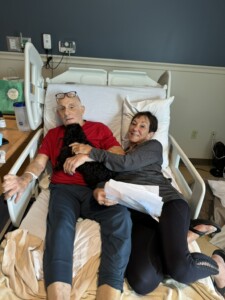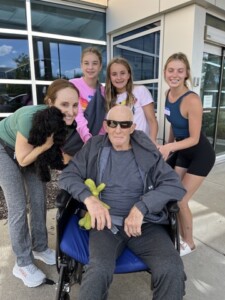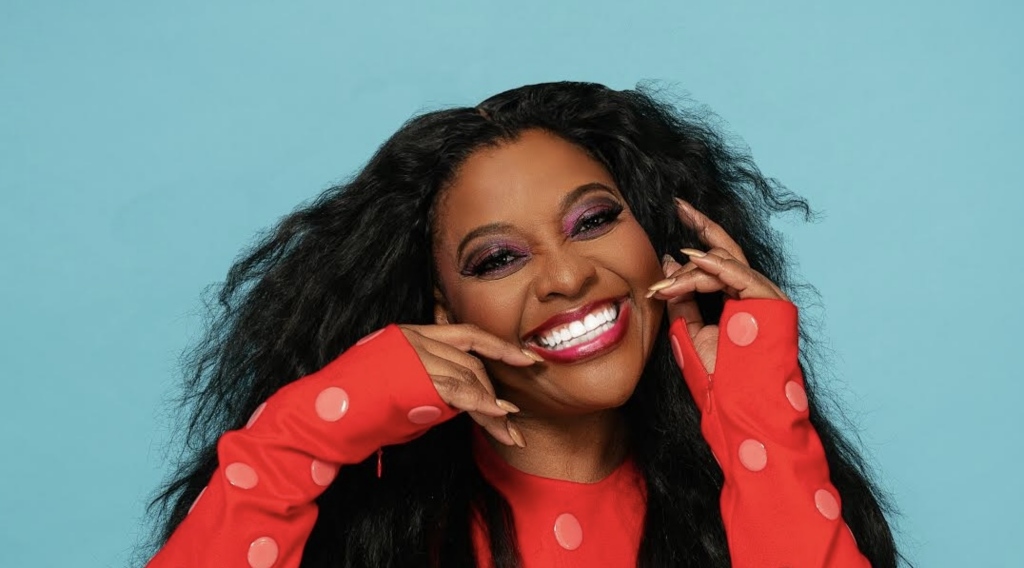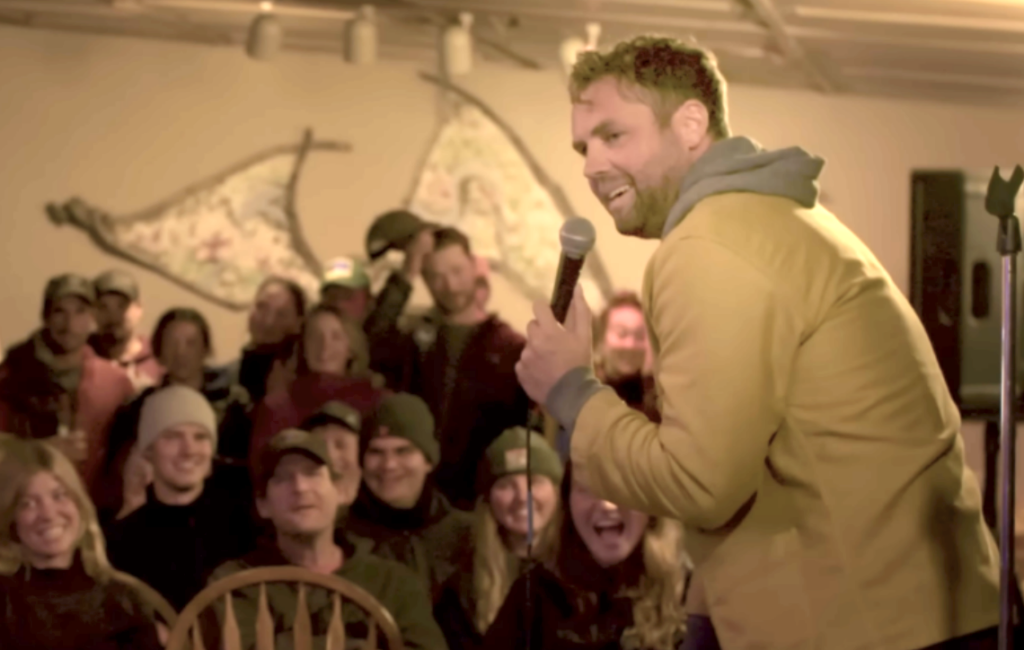‘He wasn’t supposed to survive’: War Horses For Veterans founder finds clarity after brush with death
Ten broken ribs, two brain bleeds, a broken collarbone, and a concussion so severe it was considered shaken baby syndrome. Andy Brown was not supposed to survive.
The now 75-year-old co-founder of War Horses For Veterans had spent the last decade helping combat veterans and first responders heal from their own traumatic injuries. But on June 18, 2024, Brown found himself on the other side of that mission, clinging to life after a catastrophic horseback riding accident just yards from the very ranch where he had built a sanctuary for others.
While riding near the organization’s horse ranch in Stilwell, KS, like he had done so countless times, a deer leapt into the trail. Brown’s horse reared back, surprised by the encounter, sending Brown flying off. The horse came down on top of him, crushing Brown beneath.
While he usually rides alone, Brown was lucky enough to have a riding partner with him who immediately called in help. Aid arrived fast, too, as the first responders in the area were well aware of Brown’s commitment to serving them, many of whom had been through the program themselves.
“They saved his life,” says Pat Brown, Andy’s wife and co-founder of the nonprofit. “He wasn’t supposed to make it.”
Paramedics transported him to the hospital, where the full extent of his injuries became clear. Doctors warned Pat not to expect a miracle.
“I asked the neurologist, ‘What’s the prognosis?’” Pat recalls. “He said, ‘If he was under the age of 55, we do have some studies where we could give you a better estimate, but at his age, he’s not going to survive.’ That was some terrible bedside manner.”
And yet, against every prediction, Brown did survive. He emerged from a coma two weeks later, relearned to speak, to walk, and slowly began reclaiming the life everyone thought was lost. Doctors performed a complex surgery to reconstruct his ribcage using titanium and cryo technology to freeze damaged nerves.
“Why I didn’t die, I don’t know,” Brown says. “This was God’s way of saying I had more left to do.”
Although he defied daunting odds, there was still much work to do, as the recovery process was a long and demanding road. But Brown has never been one to quit.
“There was very little hope that I would make it back to where I am now,” Brown says. “But right now, I’m working out, working my butt off.”
In their five decades of marriage, Pat says Brown has never missed a day of working out, even after surgeries, illness, or other random setbacks. Brown played football and rugby in his youth, started karate in his 30s, and even began mimicking sit-ups in his hospital bed before he could fully move. His physical recovery was almost expected by those around him, but his mental health became a greater concern.
“It can be hard on you to not have yourself physically 100%,” Brown says. “I’ve gotten on a horse two or three times, but I’ve got guys on both sides of me. I’ve ridden all my life and never needed help getting up on a horse.”
While he didn’t suffer from other common traumatic brain injury (TBI) symptoms like anger management or severe memory loss, Brown did struggle with depression, but he found that to heal, it took a village.
“The most support I’ve had is from people here, people in the family. Most people who know me know I’m not a person who reaches out, but I’m willing to reach out to help. I’m more about giving than getting,” Brown says.
Ironically enough, Brown was surrounded by veterans who had experienced TBIs through their service, and he found comfort in the company of those who knew exactly what he was going through.
“It’s weird he founded this organization, now he’s using it for his own recuperation, and using it successfully,” Pat says. “All of them understood this way better than we did. I’d say, 90% of the guys and women who’ve come through this program have TBIs, and you don’t really know what it’s like until you go through it.”
Now over a year since the accident, Brown is back to riding horses in the arena with proper precautions. Balance remains a challenge, and some memories are still hazy, but Brown now spends two hours a day in the gym and dedicates his life to serving veterans.
“I think God gave me this extra time,” Brown says. “So, I’m gonna work my ass off to help as many people as I can.”
During Brown’s time serving the country, he was barred from being deployed to Vietnam due to a football injury. And although he never went across seas, he feels he owes something to the ones who did.
“I definitely would have gone because I believe that you gotta serve your country,” Brown says. “That’s an obligation that I felt like I had that I missed out on.”
In 2014, the Browns launched War Horses For Veterans so they could still serve, but on the home front instead.
Hosting six-day programs for small groups of combat veterans, the retreats teach the basics of horsemanship and ranch work but also provide camaraderie, routine, and healing. Veterans live on-site in a bunkhouse, share meals, and bond through horses and shared experience.
“What we’re trying to do is provide a home and a place for these guys for when they get out,” Brown says. “What these guys need is TLC, and people on the outside might not realize that they can have serious issues after getting out of the army.”
The camps are funded largely through donations, with the Browns often covering the rest out of pocket. The couple has lived on the property for nearly 50 years.
Now, after his accident, the bond of shared survival with these veterans connects Brown to them deeper than ever before.
“I can’t even describe to you how important it is that these people get help,” Brown says. “No matter how physically well they are, they’re going to go through mental trauma. I felt like this is work that I really believe in, and I think that these guys all deserve a pat on the back. It felt like they weren’t getting the kind of recognition that they deserved from the government.”
With the anniversary of his accident behind him, Brown is charging forward—not toward the life he had before, but the mission he was always meant to fulfill.
“I think that God has given me a goal and that is to be the best that I can be and do what’s right and what I think is right,” Brown says. “I fortunately have a lot of self-willpower and I’m very self-motivated, so I feel it’s my mission in life to help people motivate themselves.”
On one of Brown’s favorite shirts, it reads, “Don’t pray for an easy life. Pray to be strong.”
It’s a stern yet gentle reminder of how far he’s come, and how far he still plans to go.








